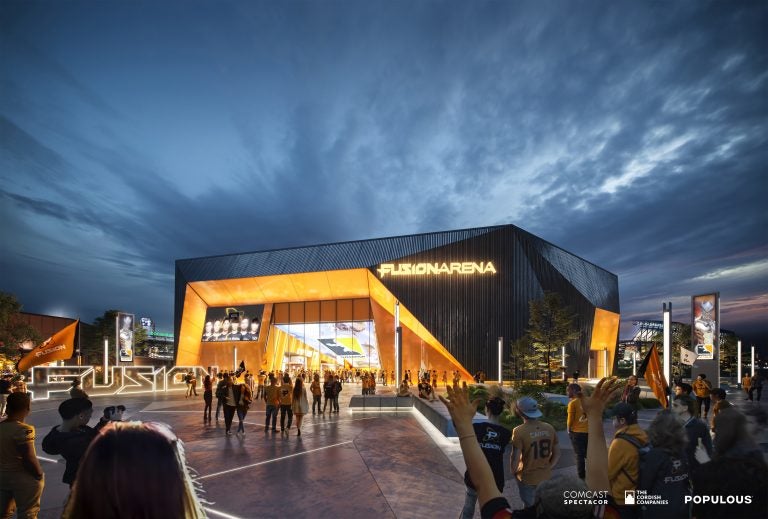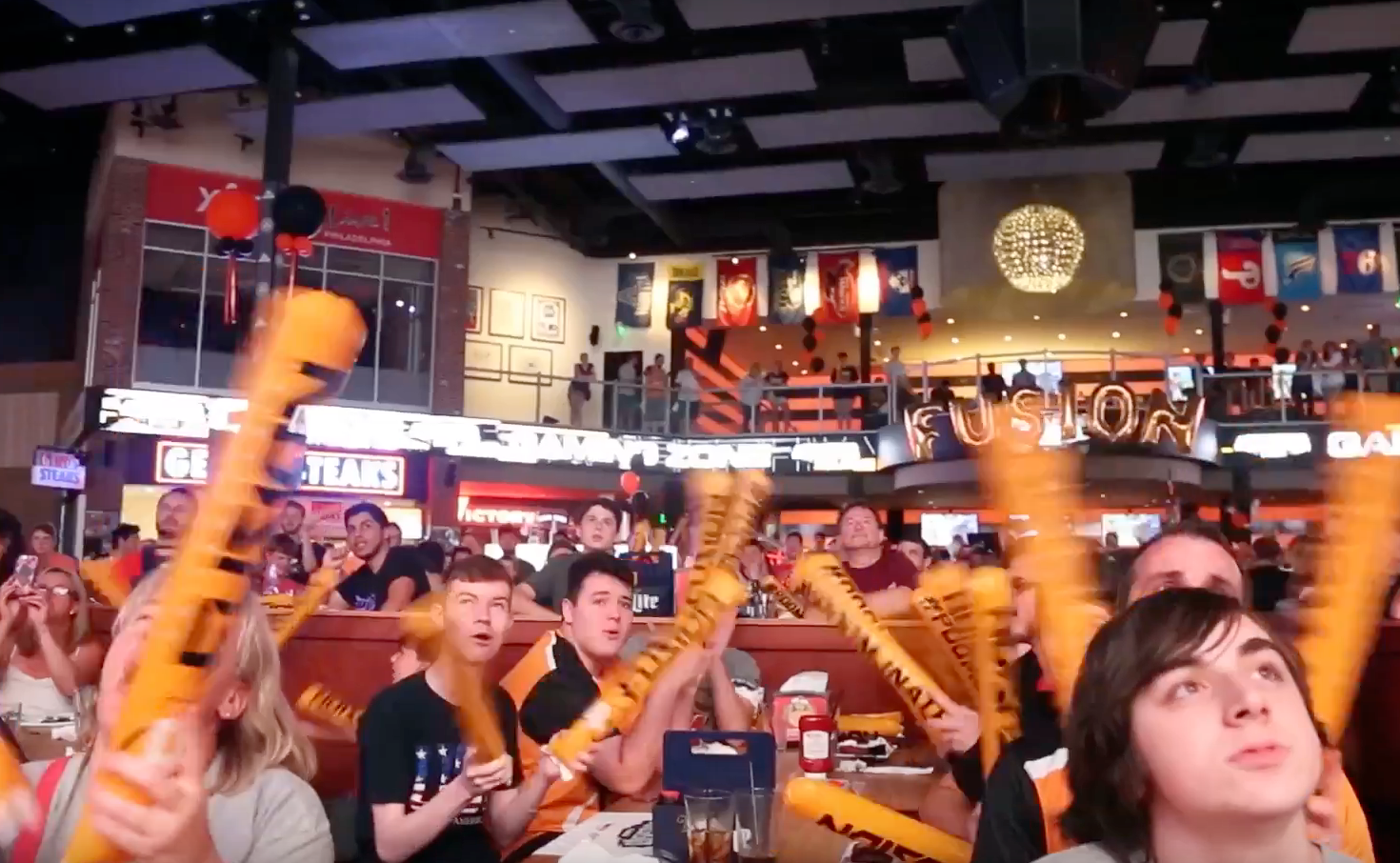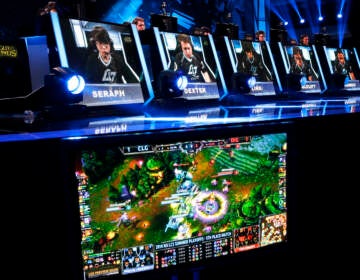Why the esports arena in South Philly is both futuristic and a little old school
An esports arena may sound like something out of science fiction. But the ideas behind this new venture are surprisingly traditional.
Listen 2:25
Rendering of the Fusion Arena. (Courtesy of Comcast Spectator)
The Philadelphia Eagles made their first home at the Baker Bowl in North Philadelphia. The 76ers tipped off for the first time at West Philadelphia’s famed Civic Center.
And in 50 years, where will fans of the Philadelphia Fusion trace their roots?
Perhaps to Wahoo’s, a fish taco joint in West Philadelphia.
That’s where fans of the fledgling esports franchise gathered last year to watch their team compete in the first-ever Overwatch League championship.
The Fusion came up short, but John Fazio says the crowd’s enthusiasm told the real story.
“There was probably 30 or 40 people there who had no clue what was going on,” said Fazio, CEO of a local esports company called N3rd Street Gamers. “They were Eagles fans. They were Sixers fans. They don’t know anything about video games. But they were standing on top of chairs screaming and yelling because it was a Philly team.”
Monday’s news that the team’s owners, Comcast Spectacor, will build a $50 million arena in South Philadelphia for the Fusion may sound to some like something out of science fiction. The Fusion competes against teams from 19 other cities in a video game called Overwatch. Comcast Spectacor is betting it can fill a 3,500-seat arena with people who want to see professional gamers wage war in this digital battleground.
The company has dubbed Fusion Arena “the largest new-construction, purpose-built esports arena in the Western Hemisphere.”
But for all of its forward-looking feel, this new project is in some ways a wager on the ideas that have made legacy sports leagues so successful.
“One of the premises of the Overwatch League is that esports can be competitive and can be of interest to a fanbase that is geographically tied just like the traditional sports team is,” said Phil Weinberg, general counsel for Comcast Spectacor. “We’re seeing it in our watch parties and in our inaugural season last year that folks are identifying with our esports team as a local team.”

Those watch parties were born out of necessity because to this point, the Philadelphia Fusion have only tenuous ties to the city.
During its first two seasons, the Fusion and other teams in the Overwatch League competed out of a venue in Los Angeles.
The team will move east next season and eventually christen its new home arena in 2021.
The idea is to build a civic loyalty to the Fusion that mirrors the way fans feel about the Phillies, Flyers, Sixers, and Eagles. Having a physical home is designed to hasten that connection.
“If you know anything about Philly fans, it’s going to be the same thing,” said Christian Gillespie, an esports commentator and fan. “They’re going to fill up that arena and it’s going to be absolutely loud.”
No one doubts the growing popularity of esports, which by some estimates will soon surpass every American sports league besides the NFL in terms of raw viewership. Clearly, there is a market for people who enjoy watching others compete in video games.
Some of that growth has been catalyzed by live streaming services, such as Twitch, which allow popular gamers to livestream their games.
The question is whether that kind of enthusiasm can be packaged into a league format that resembles traditional sports and sparks consistent, in-person attendance.
Fazio says in-person esports viewing doesn’t have the same aesthetic appeal as traditional sporting events. Visually, he says, it’s not all that different than watching at home.
What separates it, though, is the intimacy. Spectators can expect to see their favorite players up close and even chat with them.
“It’s going to be a social experience,” Fazio said.
That social experience extends into the stands, says Jason Lake, CEO of the esports company Complexity Gaming, whose investors include Dallas Cowboys owner Jerry Jones.
He believes fans who attend competitions in person relish the opportunity to be among like-minded folks.
“It’s very, very communal,” Lake said. “You want to engage in this activity with people that love the same things you love.”
Though esports grew up online, the pivot back to an in-person experience is in some ways a return to its roots.
Gaming culture began with friends gathering in basements and living rooms to compete against each other and watch each other play, says TL Taylor, an MIT professor and author of two books on esports.
“That kind of offline core has always kind of been a part of gaming,” Taylor said.
Taylor worries that the hype around esports may exceed the actual consumer demand, and there’s been speculation of a possible esports bubble. Ventures like Fusion Arena are a risk, she says.
But on a basic level, there’s nothing contradictory or even that new about gaming as a physical, spectator experience.
And regardless of whether Comcast Spectacor succeeds in South Philadelphia, the fact that the company will attempt this venture is a statement on its own.
“It’s a huge investment in physical infrastructure that’s meant to last for years,” said Lake with Complexity Gaming. “It’s just another sign that a major, blue-chip American company believes in the space.”
WHYY is your source for fact-based, in-depth journalism and information. As a nonprofit organization, we rely on financial support from readers like you. Please give today.





